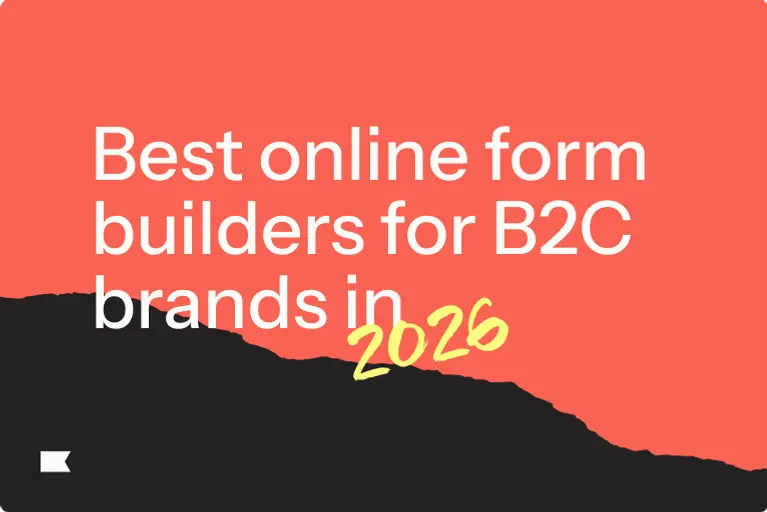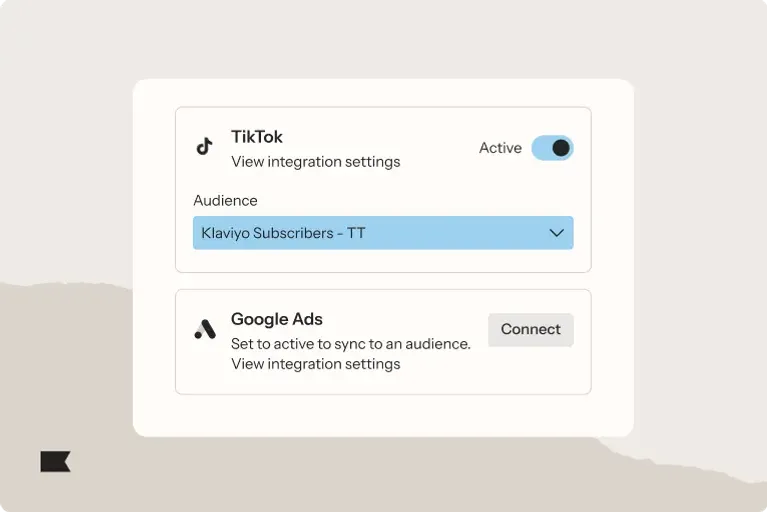Short. Snappy. Authentic.
These are just some of the reasons why TikTok has exploded in popularity.
But the app offers more than viral dances, cat videos, and the latest places to eat. It’s also unlocked a whole new opportunity for ecommerce businesses to showcase products and connect with buyers.
Welcome to the world of TikTok ecommerce.
In 2023, TikTok generated $3.8 billion in consumer sales, proving its power as a social selling platform. With almost 150 million Americans using it as a way to discover new products and trends, brands now see TikTok as an effective way to grow their audiences and boost online sales.
But for marketers who’ve never used this platform before, it can be hard to know where to start. While the style of marketing on TikTok looks different from other channels like email and SMS, dig a little deeper and you’ll find familiar techniques at play.
If you’re ready to find out how to harness the power of short, social videos, we’ve rounded up 7 TikTok ecommerce strategies, including examples from real-life brands that are already making the most of the platform.
1. Use hashtags and keywords
With almost 40% of Gen Z consumers starting their search for online products on TikTok or YouTube, it’s no longer enough to feature your products on the first page of Google.
But for your video content to show up in front of potential buyers, your TikTok ecommerce strategy still needs to include hashtags and keywords.
TikTok users may be searching for #beautytips or #trending products, but these hashtags and keywords also inform the algorithm used to match your content to the right audience.
Hashtag challenges, meanwhile, incentivize TikTok users to showcase a brand’s products using a specific hashtag, while also creating user-generated content (UGC) at scale. According to TikTok research, this kind of content can have a positive effect on the scale of a brand’s reach and engagement.
Take a look at this example from Klaviyo customer Jones Road Beauty. To get their content in front of their target audience, the makeup brand uses relevant hashtags on all their TikTok videos, including:
- #makeupover40
- #matureskinmakeup
- #makeup
- #makeuptutorial
Every post also includes the #jonesroadbeauty brand hashtag.
TikTok ecommerce tip: To find hashtags and keywords that will help connect you to your audiences and grow your ecommerce business, type a keyword or hashtag into TikTok’s search bar and note the hashtags or keywords within the “other people searched for” bar on the right-hand side. The results give you a good indication of alternative keywords and hashtags to include in your content.
2. Invest in ads for acquisition and retargeting
Organic marketing and UGC are solid ways to build a following on TikTok. But if your budget allows, TikTok ads and promoted posts put your product directly in front of your target audience and help you acquire new customers.
TikTok’s Creative Center includes analysis features that explain how and why top ads perform so well. TikTok’s Creative Assistant, for example, is an AI tool designed to help brands understand best practices, find inspiration, and uncover the concepts behind why certain videos go viral. You can also ask it to write an ad script as a starting point.
TikTok ecommerce tip: Connecting your perfectly crafted ad to the right audience is key to getting the best ROI for your ad spend. With Klaviyo, you can use the segmentation builder to build lookalike audiences and discover new audiences that share specific traits with your current, top customers. You can also use Klaviyo to retarget existing customers based on behavioral data.
3. Partner with creators and influencers
TikTok users can spot sales pitches masquerading as authentic content from a mile away. That’s why partnerships can be extremely effective at getting your message across in a genuine way.
By working with creators and influencers, brands can tap into the natural, unforced type of content TikTok users love so much.
Develop influencer relationships and expand brand awareness by sending creators a box of products you’ll soon be releasing, or partnering with an influencer on one or more videos featuring your content. Remember, these influencers should already be producing material that resonates with your target audience so their content highlighting your product is natural and authentic.
A great example: Klaviyo customer ButcherBox partnered with TikTok creator @lowcarbstateofmind on this quick tutorial for beef fried rice using ButcherBox meat. The video, which racked up 2.5 million views, included a special offer for viewers who signed up for their first box.
TikTok ecommerce tip: Notice that @lowcarbdstateofmind’s video includes the hashtag #ButcherBoxPartner to disclose their partnership with the brand. TikTok users expect to watch ads—but if a creator or influencer you’re working with fails to disclose a partnership or sponsored ad, it can damage brand trust and loyalty.
When posting partnership videos, US brands should follow guidance from the Federal Trade Commission (FTC), and UK brands should follow guidance from the Competition & Markets Authority (CMA).
4. Don’t sell. Entertain
People are on TikTok to be entertained—they want originality and humor, not scripted sales. Placing entertainment at the heart of your strategy for this platform means you’re more likely to connect with your target market.
Klaviyo customer TUSHY is a great example of a brand that hangs its TikTok strategy on humor. With more than 1.6 million likes on TikTok, the bidet company is certainly doing something right. For this brand, that means creating irreverent, unserious content, full of bathroom jokes and poop emojis.
But alongside the funny, viral videos, there are also short tutorials (this time-lapsed video featuring the TUSHY Classic 3.0, for example, shows audiences how to install the bidet in under 9 minutes). Of course, the brand’s voice features prominently, but these tutorials still serve a useful educational purpose by showing how easy it can be to install their product.
TikTok ecommerce tip: While TUSHY’s tone might not be right for your audience, these short, tutorial-style videos can still work—as long as they entertain your audience at the same time as educating them. TikTok is the perfect platform for letting loose and having a bit of fun.
5. Focus on going viral
On TikTok, viral content is the name of the game. Get it right, and these trending videos can boost sales.
Sometimes, UGC is the key to going viral—especially because videos that come across as scripted or overly produced will likely alienate platform users.
Klaviyo customer Squishmallows, a brand that sells round toys with a soft velvety covering and a distinctive “squish,” features a huge amount of UGC on their official @Squishmallows TikTok account. One viral trend they’re enjoying: “squishmallow plops.”
These videos show customers dropping their plush creatures and rating their squishiness. They often follow a similar visual and audio format, harnessing viral music and driving thousands of views.
Accounts like @infamousbutterfly and @cedarcouple2 also post UGC of Squishmallows’s products, with some of their most popular posts earning more than 19.1 million views. Thanks in part to this kind of viral content, the brand sold over 100 million Squishmallows in 2022 alone—and these squishy toys drove 40% of the entire revenue for their parent company, Jazwares.
TikTok ecommerce tip: Try using TikTok’s Creative Assistant to create natural, branded content that mimics UGC.
6. Tune in to audio trends
Squishmallows’ strategic use of sound contributed to their viral success, and 88% of TikTok users say sound is essential to the TikTok experience. One of the best ways to harness the power of TikTok, then, is to piggyback on audio trends when creating videos.
TikTok Sounds for Business includes voice clips from some of the platform’s most popular creators, designed to help businesses tap into recognizable voices like @sanisisters, @mattbooshell, and @anania00. You also save time during the creation process because each audio clip is already approved, so there’s no need to obtain licenses for the audio.
Another option for sourcing catchy audio is monitoring what’s trending on the “For You” page. Here’s how:
- Scroll through the top 15-20 videos.
- Listen for the same audio in multiple videos.
- Choose a video containing audio you’d like to use.
- Select the sound clip and view other videos that use the same clip.
- See if there’s a pattern to how others are using the sound and combining it with specific visual elements, like dance moves or text boxes.
- Recreate your version that aligns with other content.
You can also search for viral sounds and then use the Sounds tab to see how many times they’ve been used in other videos. The audio clip Barbaras Rhabarberbar by Bodo Wartke and Marti Fischer, for example, inspired viral dance moves from TikTok users including @steph_who___, with one video earning 25 million views. The audio clip has now been featured in over 52 thousand videos.
TikTok ecommerce tip: To discover more about trends like these, use the TikTok Creative Center Trends Dashboard, where you can view trend analytics and filter them by region. Or, check out the TikTok for Business What’s Next 2024 Trend Report for tips on how to keep up with an evolving culture by creating relevant content.
7. Set up a TikTok Shop
TikTok Shop, which launched in the US in 2023, enables platform users to complete their purchases directly within the app. The launch helped TikTok become the 4th most used social commerce platform, with 33.3 million buyers in 2023.
Projections suggest this number will continue to grow, so it makes perfect sense to add this to your ecommerce selling strategy.
In 2023, the top 5 TikTok Shop product categories for 2023 were:
- Beauty and personal care
- Womenswear and underwear
- Food and beverages
- Home supplies
- Fashion accessories
Once you’ve set up your shop, you can create video ads with product links that take viewers directly to purchase options.
TikTok ecommerce tip: By integrating Klaviyo and TikTok Shop, you can centralize marketing and customer data and gain access to actionable insights that help optimize your marketing strategies and boost performance.
Driving TikTok ecommerce growth with Klaviyo
The best way to get started with TikTok ecommerce is to dive right in.
Once you’ve experimented with creating engaging clips, you’ll have a deeper understanding of what your target audiences like and dislike. Then, you can start tailoring your strategy to what best resonates with them.
Ready to discover how to power smarter marketing? Klaviyo makes it possible for ecommerce businesses to seamlessly connect their TikTok Shop and drive more sales—one viral video at a time.
Power smarter digital relationships with Klaviyo SMS.
Get started


